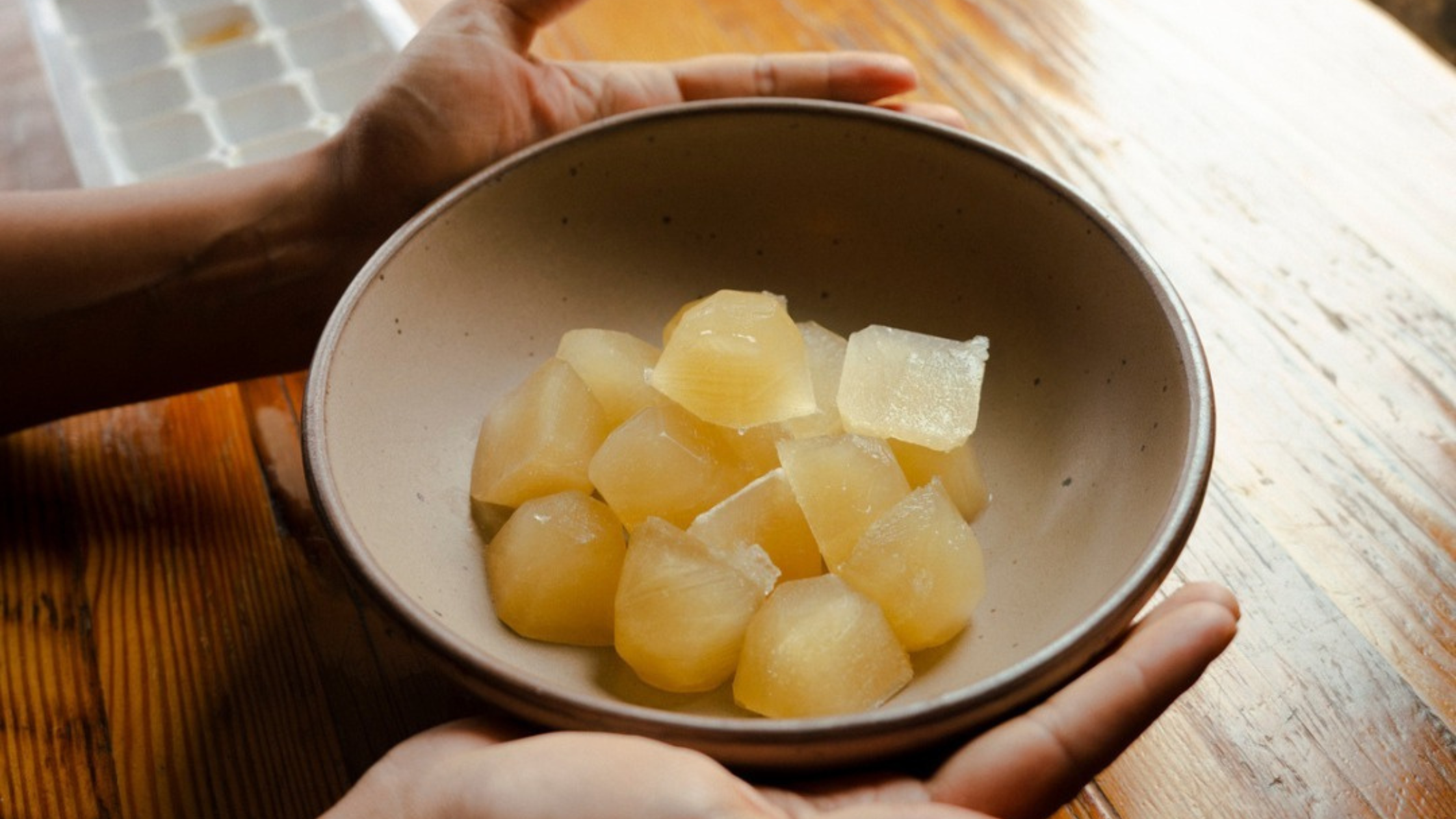Expert-Backed Advice on Serving bone broth to infants
Expert-Backed Advice on Serving bone broth to infants
Blog Article
The Value of Healthy And Balanced Food: Why Bone Broth Is an Excellent Option for Babies
Bone broth stands out as a nutrient-dense alternative, offering essential vitamins and minerals that support development and growth. What are the ideal methods to introduce bone broth to your little one?
Nutritional Perks of Bone Broth for Infants
When you introduce bone broth to your baby's diet plan, you're offering a nutrient-dense food that uses numerous health advantages. Packed with crucial nutrients, bone broth includes calcium, magnesium, and phosphorus, which sustain your baby's expanding bones. It's additionally abundant in collagen, helping in the advancement of healthy skin, joints, and connective cells.
Moreover, bone broth is an excellent resource of amino acids like glycine and proline, which play a considerable role in total development and muscle development. These nutrients assist promote a strong immune system, establishing a solid structure for your baby's wellness.
Furthermore, bone broth is easy to absorb, making it a gentle alternative for your kid. By integrating this wholesome food into their dishes, you're guaranteeing they get vital nutrients required for their general wellness. So, proceed and make bone broth a staple in your infant's diet plan!
Just How Bone Broth Supports Food Digestion
Bone broth is packed with essential nutrients that can truly profit your baby's food digestion. It advertises intestine health and aids with nutrient absorption, making it a wonderful addition to their diet plan. By including bone broth, you're establishing the stage for a much healthier digestion system.
Nutrient-Rich Composition
Among one of the most nutrient-rich foods you can introduce to your baby's diet plan is bone broth, which is packed with vital minerals and amino acids that support healthy and balanced digestion. Rich in collagen, bone broth helps strengthen your baby's gut lining, making it much easier for their body to soak up nutrients. It provides gelatin, which helps in breaking down healthy proteins, advertising smoother food digestion. Additionally, the broth includes necessary electrolytes like potassium and magnesium, guaranteeing your baby remains hydrated and stabilized. The amino acids, such as glycine and proline, play a vital duty in fixing cells and sustaining overall health (organic bone broth copyright). By integrating bone broth right into your infant's meals, you're giving them a wholesome food that nurtures their digestive system properly.
Promotes Gut Health
As you introduce bone broth into your infant's diet, you'll find it not only nurtures however also promotes intestine health properly. Rich in jelly, bone broth aids soothe the digestive system, lowering swelling and supporting a healthy and balanced digestive tract lining. This is important for babies, as a well balanced gut environment lays the structure for overall health. Additionally, the amino acids discovered in bone broth, such as glycine, aid in digestion and can help avoid common belly problems. By including this nourishing fluid, you're providing your child with necessary nutrients that add to a flourishing gastrointestinal system. Ultimately, a healthy and balanced digestive tract can influence whatever from resistance to state of mind, making bone broth an exceptional choice for your kid.
Aids Nutrient Absorption
Presenting bone broth not only sustains gut wellness yet additionally plays a significant duty in aiding nutrition absorption. When you offer your infant bone broth, you're offering a rich resource of minerals and amino acids that enhance their gastrointestinal procedures. The gelatin in bone broth aids to relieve the digestive tract lining, improving its capability to absorb crucial nutrients.
Reinforcing the Immune System With Bone Broth

In addition, bone broth contains glycosaminoglycans, like glucosamine, that can enhance the body immune system's capacity to work effectively. This implies it not only assists in developing defenses yet also aids in recuperation from health problems. By integrating bone broth into your infant's diet plan, you're providing an all-natural resource of nutrition that promotes health. Take into consideration making bone broth a staple in your baby's meals, as it can play a vital role in their immune health and growth.
Easy Ways to Include Bone Broth Into Baby's Diet regimen
Including bone broth right into your child's diet regimen can be basic and fulfilling. Begin by blending a percentage of bone broth right into pureed vegetables or fruits. This includes taste and nutrients without overwhelming your child. You can additionally make use of bone broth as a base for soups or stews that you prepare for the family members, guaranteeing your infant gets a taste of tasty, healthier meals.
Another choice is to offer bone broth by itself. Warm it up and supply it in a sippy cup or tiny bowl-- it's a fantastic method to present brand-new flavors. If your infant appreciates grains, think about cooking rice or quinoa in bone broth instead of water for extra sustenance. Finally, you can ice up bone broth in ice dice trays, making it very easy to include a dice to various dishes whenever you want. These techniques will assist your child profit of bone broth easily!
Homemade vs. Store-Bought Bone Broth: What to Choose
Which is better for your child: homemade or store-bought bone broth? Home made bone broth supplies you total control over the components. You can pick high-grade bones, natural veggies, and herbs, ensuring your child obtains one of the most nutrients without additives or preservatives. Plus, making it in your home can be a satisfying experience, enabling you to bond with your infant while preparing wholesome food.
On the other hand, store-bought options are hassle-free and conserve you time. Nonetheless, they commonly contain preservatives and may not match the depth of flavor and nourishment you obtain from homemade broth. If you select store-bought, try to find brands that are natural and devoid of ingredients.
Eventually, if you have the time and sources, homemade bone broth is the superior choice for your baby's health and wellness. If you're brief in a timely manner, select a high quality store-bought option as a back-up.
Age-Appropriate Bone Broth Serving Recommendations
As your baby grows, it's vital to customize bone broth serving pointers wikipedia reference to their developmental phase. For babies around six months, begin with a couple of does of watered down bone broth (bone broth for click reference infants).
By the time your little one is around a year old, consider supplying bone broth as a standalone beverage or mixing it right into soups and stews. Just make certain to keep the broth reduced in sodium.
Various Other Healthy And Balanced Foods to Couple With Bone Broth for Babies
When you're wanting to enhance the nutritional value of bone broth for your infant, consider coupling it with nutrient-dense veggies like carrots and spinach. Whole grain choices, such as quinoa or wild rice, can additionally add structure and fiber. Additionally, integrating healthy protein resources like shredded chicken or lentils will complete the meal perfectly.

Nutrient-Dense Vegetables
Nutrient-dense vegetables are an amazing enhancement to bone broth for infants, boosting both taste and nutrition. Including veggies like carrots, spinach, and wonderful potatoes can increase the minerals and vitamin content of your broth. Carrots offer beta-carotene for healthy and balanced vision, while spinach is loaded with iron and calcium, important for development. Pleasant potatoes add all-natural sweet taste and are rich in fiber, helping food digestion.
You can quickly blend these veggies into the broth or serve them as soft, prepared items alongside it. This not just presents brand-new flavors but also urges your child to take pleasure in a variety of nutrients. By coupling nutrient-dense veggies with bone broth, you're laying the foundation for a healthy and balanced diet right from the start.
Entire Grain Options

Healthy And Balanced Protein Resources
Bone broth pairs splendidly with numerous healthy and balanced protein resources, additionally improving your infant's diet plan. Attempt adding soft, prepared lentils; they're nutrient-dense and stuffed with protein. You can also blend in shredded chicken or turkey, which are easy for your youngster to absorb. If you're searching for plant-based options, think about mashed tofu or pureed chickpeas-- both give excellent healthy protein without overwhelming tastes. Eggs, when introduced safely, are another great option; they're functional and loaded with nutrients. Eventually, blending in some well-cooked quinoa can add a good texture and added protein. By incorporating these healthy protein sources with bone broth, you're offering your baby a balanced, beneficial meal that supports their growth and advancement.
Regularly Asked Questions
Can Bone Broth Cause Allergies in Newborns?
Yes, bone broth can cause sensitive reactions in babies, especially if they're delicate to certain components. Constantly consult your pediatrician prior to introducing new foods and screen for any signs of allergies after feeding.
Exactly How Should Bone Broth Be Kept for Infants?
You should save bone broth in airtight containers, either in the fridge for approximately a week or in the freezer for up to 3 months. organic bone broth copyright. Constantly thaw it correctly before offering to your baby
Is It Safe to Give Bone Broth to Premature Infants?
It's vital to consult your pediatrician before introducing bone broth to early babies. They'll assess your baby's particular wellness requirements and ensure it's safe, considering their one-of-a-kind nutritional requirements and developmental stage. Constantly prioritize professional recommendations.
What Are the Indicators of Intolerance to Bone Broth in Children?
When introducing bone broth, watch for indications like fussiness, breakout, diarrhea, or vomiting. If your child shows any one of these reactions, it's ideal to seek advice from a pediatrician prior to continuing to use it.
Can Bone Broth Be Used as a Meal Substitute for Newborns?
No, you shouldn't make use of bone broth as a meal replacement for babies. It lacks essential nutrients required for their development. Rather, include it into their diet regimen along with balanced dishes for added nutrients and flavor.
Report this page